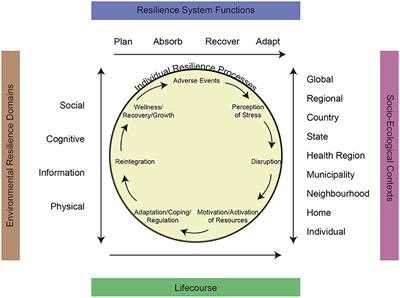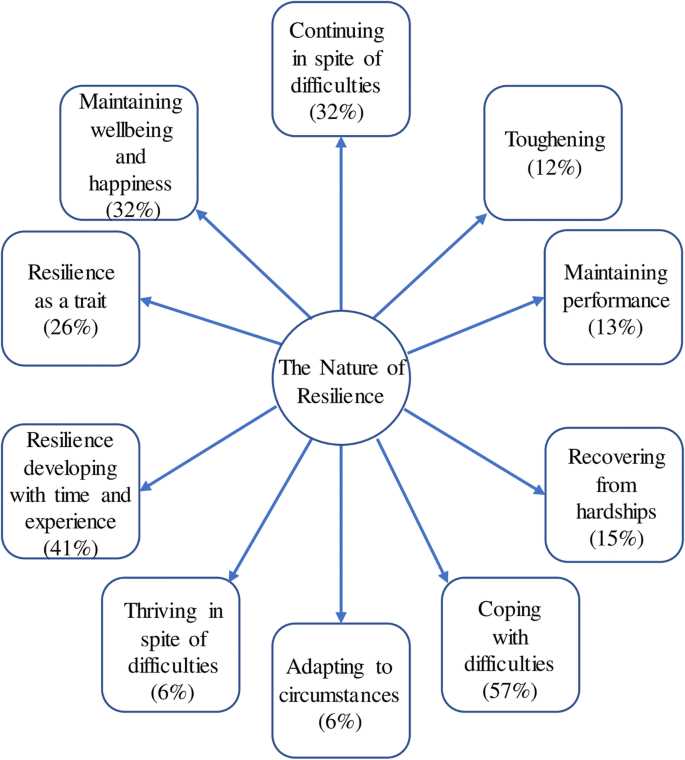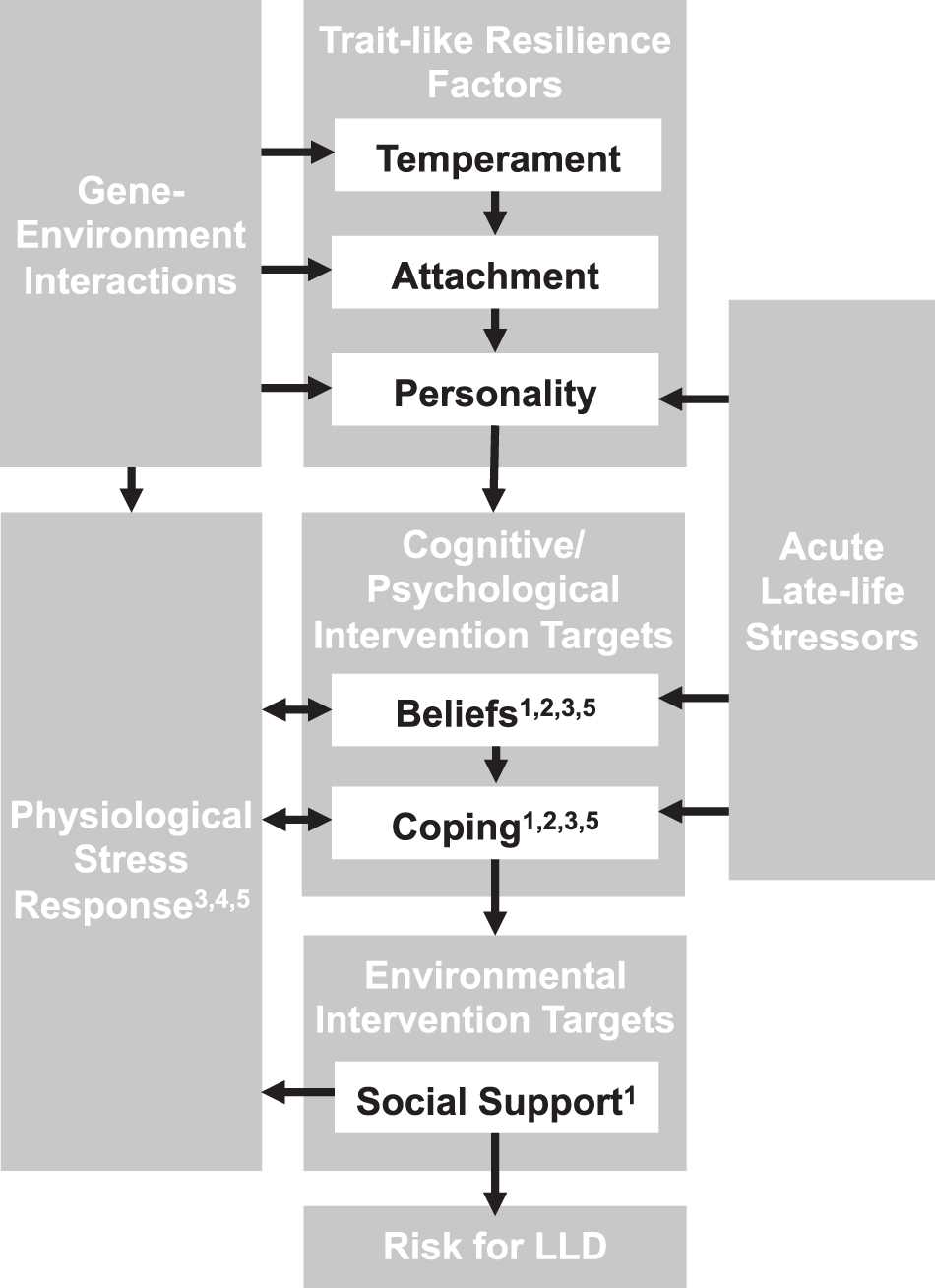
In today’s interconnected world, more and more individuals find themselves living in cross-cultural environments. The experience of living in a different culture can be both enriching and challenging. One of the key factors that determine how individuals adapt and thrive in these situations is their resilience.
Resilience, in the context of cross-cultural living, refers to an individual’s ability to bounce back from the challenges and stressors that come with navigating a new culture. It is the strength that allows individuals to adapt, learn, and grow from their experiences, rather than being overwhelmed by them.
Culturally, resilience takes on a unique dimension. It involves not only the ability to cope with individual stressors but also the capacity to navigate and understand the cultural nuances and expectations of the new environment. This requires a deep understanding of the cultural context, the ability to communicate effectively, and the willingness to embrace new perspectives and ways of thinking.
Living in a cross-cultural setting can be a transformative experience, but it is not without its challenges. The stressors that come with adjusting to a new culture, such as language barriers, social isolation, and unfamiliar customs, can take a toll on an individual’s well-being. However, by developing resilience, individuals can not only survive but thrive in these environments, gaining a deeper understanding of themselves and the world around them.
The Impact of Cross-Cultural Living on Mental Health
Living in a different culture can be a challenging experience that affects one’s mental health. The ability to adapt and navigate through unfamiliar cultural norms and values requires a certain level of resilience. Culturally diverse individuals often face unique stressors that can contribute to mental health issues.
One of the main sources of stress in cross-cultural living is the feeling of being a cultural outsider. This can lead to feelings of isolation, loneliness, and a sense of not belonging. The constant need to adapt to new customs, traditions, and social expectations can be overwhelming and cause anxiety and depression.
Another factor that impacts mental health in cross-cultural living is the language barrier. Communication difficulties can lead to frustration, misunderstandings, and feelings of incompetence. Not being able to express oneself fully or understand others can increase stress levels and hinder social interactions.
Furthermore, the lack of social support networks can exacerbate mental health issues. Moving to a new country often means leaving behind family, friends, and familiar support systems. The absence of a strong support system can make it harder to cope with stress and increase the risk of developing mental health disorders.
However, it is important to note that cross-cultural living can also have positive effects on mental health. It can promote personal growth, enhance resilience, and broaden one’s perspective. Living in a different culture can provide opportunities for self-reflection, self-discovery, and the development of new coping mechanisms.
Overall, the impact of cross-cultural living on mental health is complex and multifaceted. It is crucial to recognize the unique challenges faced by culturally diverse individuals and provide adequate support and resources to promote mental well-being in these populations.
Cultural Adjustment Challenges

Living in a different culture can be a source of stress for many individuals. The experience of adapting to a new way of life, customs, and norms can be overwhelming and challenging. This cultural adjustment process can lead to feelings of isolation, frustration, and homesickness.
Cultural differences can manifest in various aspects of daily life, such as communication styles, social norms, and expectations. These differences can create misunderstandings and misinterpretations, adding to the stress and challenges of living in a new culture.
Resilience plays a crucial role in navigating cultural adjustment challenges. Developing resilience allows individuals to adapt and cope with the stresses and difficulties of cross-cultural living. Resilience involves building a strong support network, seeking out resources and information, and developing effective coping strategies.
It is important to recognize that cultural adjustment challenges are a normal part of the process of living in a different culture. By acknowledging and understanding these challenges, individuals can better navigate the stress and build resilience to thrive in their new cultural environment.
Language Barriers and Communication Difficulties

When living in a cross-cultural and culturally diverse environment, language barriers can pose significant challenges to communication and understanding. The ability to effectively communicate and understand others is crucial for building resilience in such a setting.
Language barriers can arise due to differences in spoken languages, dialects, or even accents. These barriers can make it difficult to express oneself clearly, leading to misunderstandings and miscommunication. Moreover, they can hinder the ability to understand and interpret the cultural context of conversations.
Communication difficulties caused by language barriers can lead to feelings of frustration, isolation, and even stress. It can be challenging to navigate daily tasks, such as shopping, seeking medical help, or interacting with local communities, without a common language. This can further impact one’s ability to adapt and thrive in a cross-cultural environment.
Resilience in the face of language barriers and communication difficulties involves finding alternative ways to communicate and understand others. This may include using non-verbal cues, such as gestures or facial expressions, to convey meaning. It may also involve seeking language learning opportunities to bridge the gap and improve communication skills.
Developing cultural sensitivity is also essential in overcoming language barriers. Understanding and respecting cultural norms and practices can help navigate communication challenges and foster mutual understanding.
In conclusion, language barriers and communication difficulties can significantly impact cross-cultural living and resilience. Finding ways to overcome these barriers, such as learning the local language and developing cultural sensitivity, can enhance communication and understanding, ultimately promoting a more resilient and fulfilling experience in a culturally diverse environment.
Social Isolation and Loneliness
Social isolation and loneliness are common challenges faced by individuals living in cross-cultural environments. Resilience in dealing with these issues can vary culturally, as different societies may have different norms and expectations regarding social connections and support systems.
Stress can contribute to social isolation and loneliness, as individuals may find it difficult to connect with others or maintain relationships when they are overwhelmed by the demands of living in a new culture. The experience of stress can also lead to a sense of isolation, as individuals may feel disconnected from their familiar support networks and struggle to establish new ones.
Living in a cross-cultural environment can be particularly challenging when it comes to social connections. Language barriers, cultural differences, and unfamiliar social norms can all make it difficult to form meaningful relationships and feel a sense of belonging. This can lead to feelings of loneliness and isolation, which can in turn impact mental health and overall well-being.
Building resilience in the face of social isolation and loneliness is crucial for individuals living in cross-cultural environments. This can involve seeking out social support networks, both within the local community and online. Engaging in activities that align with personal interests and values can also help to foster a sense of connection and belonging.
It is important for individuals living in cross-cultural environments to recognize the potential impact of social isolation and loneliness on their well-being and take proactive steps to address these challenges. By building resilience and seeking out social connections, individuals can better navigate the stress and challenges of living in a new culture.
Building Resilience in Cross-Cultural Living

Living in a cross-cultural environment can be a source of stress for individuals. The challenges of adapting to a new culture, language, and customs can often lead to feelings of isolation, frustration, and anxiety. However, it is possible to build resilience in cross-cultural living and navigate these challenges with greater ease.
One key aspect of building resilience in cross-cultural living is developing cultural competence. This involves gaining an understanding and appreciation for the beliefs, values, and practices of the new culture. By actively seeking to learn about and engage with the local community, individuals can develop a sense of belonging and connection, which can help to reduce stress and promote resilience.
Another important factor in building resilience is maintaining a positive mindset. Culturally diverse environments can be overwhelming at times, but by focusing on the opportunities for growth and learning, individuals can develop a more positive outlook. This can help to reduce stress and increase resilience in the face of challenges.
Building a support network is also crucial for building resilience in cross-cultural living. Connecting with others who are going through similar experiences can provide a sense of validation and support. Additionally, seeking out mentors or cultural guides who can provide guidance and advice can be invaluable in navigating the challenges of cross-cultural living.
Lastly, self-care is essential for building resilience. Culturally diverse environments can be demanding, both physically and emotionally. Taking time to engage in activities that promote relaxation and well-being, such as exercise, meditation, or hobbies, can help to reduce stress and build resilience.
In conclusion, building resilience in cross-cultural living involves developing cultural competence, maintaining a positive mindset, building a support network, and practicing self-care. By actively engaging with the new culture, seeking support from others, and taking care of oneself, individuals can navigate the challenges of cross-cultural living with greater resilience and well-being.
Developing Cultural Competence

Resilience and stress in cross-cultural living are deeply intertwined with cultural competence. Culturally competent individuals possess the knowledge, skills, and attitudes necessary to effectively interact and communicate with people from different cultures. Developing cultural competence is essential for navigating the challenges and complexities of cross-cultural living.
Resilience in cross-cultural living requires an understanding and appreciation of cultural diversity. This involves recognizing and respecting different cultural norms, values, and beliefs. Culturally competent individuals are able to adapt and adjust their behavior to fit within the cultural context they are living in, reducing the potential for stress and conflict.
Building cultural competence involves actively seeking out opportunities to learn about different cultures. This can be done through reading books, watching documentaries, attending cultural events, or engaging in conversations with individuals from different cultural backgrounds. By gaining knowledge and understanding of other cultures, individuals can develop empathy and a broader perspective, which can enhance their resilience in cross-cultural living.
Developing cultural competence also requires self-reflection and self-awareness. Individuals need to examine their own biases, stereotypes, and assumptions about other cultures. This process involves recognizing and challenging these biases, and actively working to overcome them. By developing a more open and inclusive mindset, individuals can better navigate cultural differences and reduce the potential for stress and misunderstandings.
Effective communication is another crucial aspect of cultural competence. Culturally competent individuals are able to adapt their communication style to be more effective in different cultural contexts. This involves being aware of non-verbal cues, understanding cultural communication norms, and being sensitive to language barriers. Good communication can foster understanding and build connections, reducing the potential for stress and conflict.
In summary, developing cultural competence is essential for resilience and stress management in cross-cultural living. By gaining knowledge, embracing diversity, challenging biases, and improving communication skills, individuals can enhance their ability to navigate the complexities of living in a culturally diverse world.
Building a Support Network
In the face of stress and challenges, having a strong support network is crucial for maintaining resilience, especially when living in a culturally diverse and cross-cultural environment. Building and cultivating a support network can provide individuals with the emotional, practical, and informational support needed to navigate the complexities of cross-cultural living.
One way to build a support network is by reaching out to others who share similar experiences and backgrounds. This can be done through joining local community groups, attending cultural events, or participating in language exchange programs. By connecting with individuals who have faced similar challenges, one can gain valuable insights and advice on how to cope with stress and build resilience in a cross-cultural context.
Additionally, it is important to actively seek out and maintain relationships with individuals from different cultural backgrounds. This can help broaden one’s perspective, foster mutual understanding, and provide a diverse range of perspectives and coping strategies. By engaging with individuals from different cultures, one can learn new ways of managing stress and build a more comprehensive toolkit for resilience.
In building a support network, it is also essential to prioritize self-care. This involves recognizing one’s own needs and boundaries, and seeking support from trusted friends, family members, or professionals when needed. Taking care of one’s physical and mental well-being is crucial for building resilience and effectively managing stress in a cross-cultural environment.
Lastly, it is important to remember that building a support network is an ongoing process. It requires effort, time, and open-mindedness. By actively seeking out and nurturing relationships with individuals who can provide support and understanding, individuals can strengthen their resilience and thrive in a cross-cultural setting.

I am Patrina de Silva, a psychologist and mental health blogger in Sri Lanka. After obtaining psychology degrees from the University of Colombo and Monash University, I returned home to work as a counselor while also starting the popular blog “Pressy but Happy” to provide advice on psychological issues. Over the past decade, my empathetic articles have made my blog a leading mental health resource in the country. In addition to writing, I maintain a private therapy practice, frequently volunteer counseling time, and conduct seminars, driven by my passion for destigmatizing mental illness and educating the public on the mind-body connection. I strive to be an influential voice in my field through my compassionate approach.
